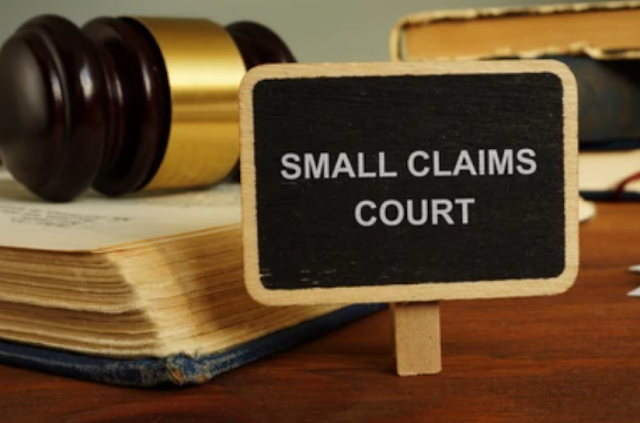Small Claims Court: A Quick and Affordable Solution for Consumer Disputes
Small Claims Court: A Quick and Affordable Solution for Consumer Disputes
Small claims court is a legal forum designed to provide a quick, accessible, and affordable solution for resolving consumer disputes. It offers an informal process for individuals to seek compensation or resolution for relatively small monetary claims. Here is a detailed explanation of small claims court, including its key features and the steps involved:
Key Features of Small Claims Court:
- Monetary Limit: Small claims court typically handles disputes involving relatively low amounts of money. The specific monetary limit varies by jurisdiction, but it is generally set to accommodate smaller claims, such as a few thousand dollars.
- Simplified Procedures: Small claims court procedures are simpler and more relaxed compared to formal court proceedings. The rules of evidence and legal technicalities are often relaxed or not strictly enforced, making it easier for individuals to represent themselves without the need for an attorney.
- Quick Resolution: The objective of small claims court is to provide a swift resolution. The process is designed to be faster than traditional litigation, and the court typically schedules hearings within a few weeks or months of filing the claim.
- Informal Setting: Small claims court proceedings usually take place in a less formal environment, such as a conference room, rather than a traditional courtroom. This relaxed atmosphere allows individuals to present their case without the need for complex legal procedures.
Steps Involved in Small Claims Court:
- Preparing the Claim: The first step is to prepare the necessary documents to file a claim. This typically includes completing a complaint form provided by the court, outlining the details of the dispute, and specifying the desired resolution or monetary compensation.
- Filing the Claim: The claimant must file the completed complaint form with the appropriate small claims court. A filing fee is usually required, although there may be options for fee waivers for individuals with limited financial means.
- Serving the Defendant: After filing the claim, the court will serve a copy of the complaint and a summons to the defendant, notifying them of the lawsuit and the court hearing date. The defendant must receive proper notice to ensure due process.
- Preparing for the Hearing: Both the claimant and the defendant should gather any relevant evidence, such as receipts, contracts, photographs, or correspondence related to the dispute. It's important to organize the evidence and prepare a concise presentation of the case.
- Attending the Hearing: On the scheduled hearing date, both parties appear before the judge or magistrate in the small claims court. Each party has an opportunity to present their case, provide evidence, and explain their position. The judge may ask questions and seek clarification.
- Receiving the Judgment: After hearing both sides, the judge or magistrate will make a decision, known as a judgment. The judgment may involve awarding compensation to the claimant, dismissing the claim, or ordering specific actions to resolve the dispute.
- Enforcing the Judgment: If the claimant is successful and receives a judgment in their favor, they must take steps to enforce the judgment and collect the awarded compensation. The court can provide guidance on the enforcement process, which may involve actions such as wage garnishment or property liens.
Benefits of Small Claims Court:
- Affordability: Small claims court is designed to be a cost-effective option, often requiring lower filing fees and minimizing legal expenses since parties can represent themselves without an attorney.
- Simplicity: The simplified procedures make small claims court accessible to individuals without legal training or extensive knowledge of the court system.
- Speedy Resolution: Small claims court offers a relatively quick resolution compared to traditional litigation, allowing parties to resolve their disputes promptly.
- Informal Setting: The informal atmosphere of small claims court can help reduce stress and make the process more approachable for individuals involved in the dispute.
Limitations of Small Claims Court:
- Monetary Limits: Small claims court is typically limited to cases involving smaller sums of money, which may not be sufficient for resolving complex or high-value disputes.
- Limited Remedies: Small claims court judgments often focus on monetary compensation and may not have the power to order specific performance or grant injunctive relief.
- No Jury Trials: Small claims court cases are usually decided by a judge or magistrate, and jury trials are not typically available.
It's important to note that specific rules and procedures for small claims court may vary by jurisdiction. Therefore, it is advisable to consult local court resources or seek legal advice to ensure a proper understanding of the process and requirements in your specific area.















No comments